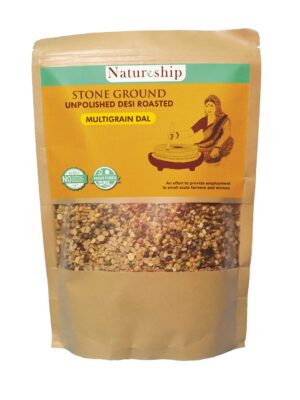| Origin | India |
| Packaging Content | 500gm |
| Suitable for | Everyone can consume, great for kids & elderly as its 100% natural and free from preservatives and chemicals |
| Expiry | 12 months from date of packaging |
Why should you buy?
- Non factory made
- Made in small batches
- Hand Roasted & Stone Ground
- Full of nutrients & fibre
- No artificial preservatives
- No artificial colorant
Benefits of Kulthi Dal
Kulthi Dal is a natural product having several health benefits such as:
- Treats Kidney Stones
- Effective in Asthma and Bronchitis
- Cures menstrual disturbances
- Helps in weight loss
- Power-Packed with dietary fibres
- Controls diabetes
- Good for skin, can be used in making face packs.
Uses of Kulthi Dal
Kulith dal can be used in making several protein rich recipes such as salad, curries (kulith dal curry), stuffed bread rolls (kulith stuffed bread rolls), dips (kollu chutney), fritters (popularly known as kollu badai in southern parts of India), sweet dish (dal halwa and laddoo), etc.
How is the product created at Natureship?
We use natural stone grinding method to process the grains. The benefits of Stone grinding are umpteen
Benefits of Natural Stone Grinding
- Slow massaging process at cool temperature preserves all nutrients
- Releases natural oils & distributes them uniformly
- Results in low glycemic index & high fiber content
- Higher temperature at mills destroys most of the nutrients, which is preserved in traditional methods









Reviews
There are no reviews yet.